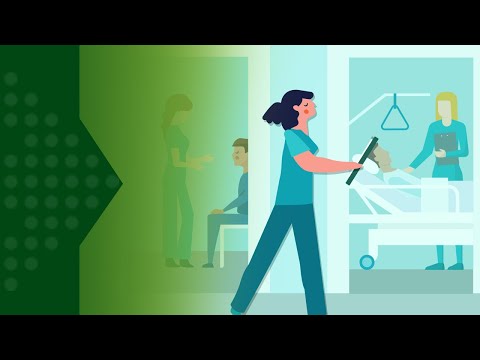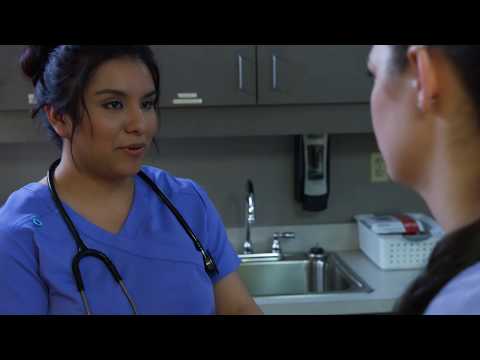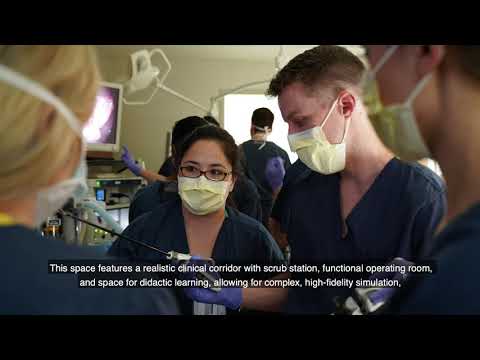Medical Assistant Skills Checklist
Contents [show]
Being a medical assistant requires a unique skill set. Use this checklist to make sure you have what it takes to succeed in the role.
Checkout this video:
Medical assistant skills and training
Medical assistants are multi-skilled health professionals specifically trained to work in outpatient facilities such as medical offices and clinics. Their duties vary with the size, location, and type of facility in which they work but generally include taking and recording vital signs, patient histories, arranging laboratory tests and x-rays, providing routine postoperative care, drawing blood, administering medications, assisting the physician during examinations, handling correspondence, scheduling appointments, and handling billing and insurance matters.
While most medical assistants have postsecondary education such as a certificate or diploma from a medical assisting program offered by a community college or vocational school, some states allow on-the-job training. Most states regulate medical assistants and require certification
The checklist below outlines the skills necessary to perform the job of medical assistant.
• Communication skills: Medical assistants must be able to effectively communicate with patients, families, physicians, and other healthcare professionals. This includes being able to understand and follow oral and written instructions.
• Interpersonal skills: Medical assistants must be able to interact with patients in a sensitive and caring manner. They must also be able to work well as part of a healthcare team.
• clinical skills: Medical assistants must be able to perform basic clinical procedures such as taking vital signs (blood pressure, temperature, pulse), performing EKGs (electrocardiograms), preparing patients for exams, collecting specimens for lab tests, administering injections, etc.
• Administrative skills: Medical assistants must be able to perform basic office duties such as answering phones, scheduling appointments, handling correspondence, etc. They may also be responsible for billing and insurance matters.
• Computer skills: Medical assistants must be proficient in the use of computers for tasks such as word processing, data entry, etc. Many medical offices use electronic health records (EHRs), so familiarity with this type of software is also important.
Medical assistant job duties and responsibilities
Medical assistants are integral members of the healthcare team, providing support to patients and doctors alike. If you’re thinking about becoming a medical assistant, or are already working in the role, it’s important to be aware of the duties and responsibilities associated with the job.
The medical assistant job description can vary depending on the size and type of healthcare facility where you work. However, there are certain duties and responsibilities that are common to most medical assistant roles. These include:
-Answering patient questions
-Scheduling appointments
-Preparing patients for exams
-Taking patient vital signs
-Assisting with procedures
-Collecting and Processing lab specimens
-Coding and billing insurance forms
-Maintaining medical records
-Ordering supplies
Medical assistants need to be highly organized and detail oriented, as they will be responsible for managing a large volume of paperwork on a daily basis. They must also have excellent communication skills, as they will be interacting with patients on a regular basis.
The importance of medical assistant skills
Medical assistants play a vital role in the healthcare industry. They are the ones who provide support to doctors and nurses and help to keep patients comfortable and informed. In order to be a successful medical assistant, it is important to have a wide range of skills. Below is a checklist of medical assistant skills that you should possess:
Communication skills: Medical assistants need to be able to communicate effectively with patients, doctors, nurses, and other members of the healthcare team. They need to be able to understand and follow instructions.
Organizational skills: Medical assistants need to be organized in order to keep track of patients’ charts, schedules, and medications. They also need to be able to multitask and prioritize their work.
Interpersonal skills: Medical assistants need to be able to build relationships with patients and their families. They need to be compassionate and understanding. They also need to be able to resolve conflicts.
Technical skills: Medical assistants need to be proficient in basic medical procedures such as taking vital signs and performing blood tests. They also need to be familiar with Medical Terminology and have basic computer skills.
The benefits of having medical assistant skills
As a medical assistant, you will enjoy many benefits. You will have the opportunity to work closely with patients and help them on their road to recovery. In addition, you will be able to learn about different medical procedures and treatments. As a result, you will be better prepared to pursue a career in the medical field if you so choose.
The top medical assistant skills needed
As a medical assistant, you will need a wide range of both clinical and administrative skills. Below is a checklist of some of the most important skills you will need to be successful in your role.
Clinical skills:
-Taking and recording patient vital signs
-Performing basic laboratory tests
-Assisting with patient examinations
-Preparing patients for and assisting with minor surgical procedures
-Instructing patients on taking medication and other self-care instructions
-Drawing blood
-Coding and filing insurance forms
Administrative skills:
-Scheduling appointments and managing calendars
-Answering telephones and greeting patients
-Updating patient medical records
-Filing insurance forms and other documentation
-Billing and coding medical claims
-Ordering office supplies
How to improve your medical assistant skills
If you’re interested in becoming a medical assistant, or if you’re already working in the field and want to improve your skills, there are a few things you can do. Here is a checklist of medical assistant skills that will help you be successful in your career:
-Communication skills: Medical assistants need to be able to communicate effectively with patients, doctors, and other members of the healthcare team. They should be able to explain procedures and answer questions calmly and patiently.
-Organizational skills: Medical assistants need to be organized in order to keep the office running smoothly. They should be able to multitask and manage their time wisely.
-Medical knowledge: Medical assistants need to have a basic understanding of medical terminology and procedures. They should also be familiar with the workings of the office, including the filing system and insurance paperwork.
-Computer skills: Medical assistants need to be proficient with computers in order to enter patient information into the electronic medical records system, schedule appointments, and perform other office tasks.
-People skills: Medical assistants need to be friendly and personable in order to put patients at ease. They should also be able to work well with other members of the healthcare team.
The difference between medical assistant skills and medical assistant training
While medical assistant skills and medical assistant training are both important, they are not the same thing. Medical assistant skills are the abilities that you need to perform your job well, while medical assistant training is the process of learning how to perform those tasks.
Some of the skills that you will need as a medical assistant include:
* Effectively communicating with patients and their families
* Accurately recording patient medical histories and vital signs
* Preparing patients for examination
* Assisting the physician during examinations
* Collecting and processing laboratory specimens
* Scheduling appointments and managing office paperwork
Although many of these skills can be learned on the job, it is also important to have some formal training before beginning work as a medical assistant. Two-year associate degree programs or one-year certificate programs are available at many community colleges and technical schools. In addition, some employers may offer on-the-job training for new employees.
The most important medical assistant skills
Whether you’re a certified medical assistant or just starting out in your career, it’s important to keep your skills sharp. From patient interaction and charting to knowledge of coding and insurance paperwork, there are a lot of medical assistant skills to keep track of. Use this checklist to make sure you’re on top of your game.
Patient interaction
-Can you put patients at ease?
-Do you have a pleasant bedside manner?
-Can you deal with distressed or angry patients in a professional way?
-Can you take accurate vital signs?
-Do you know how to measure height and weight correctly?
-Can you administer injections comfortably?
-Are you comfortable with blood draws?
Charting and documentation
-Can you accurately document patient interactions and medical history in the chart?
-Do you know how to code diagnoses using ICD-10?
-Are you familiar with common insurance forms and authorization process?
Clinical skills
-Do you know how to take accurate patient histories?
-Can you perform basic diagnostics, such as EKGs and vision tests?
-Are you comfortable administering medications, both oral and injectable? -Do you know how to properly bandage wounds?
Tips for developing medical assistant skills
Are you thinking of becoming a medical assistant? If so, you will need to develop a number of essential skills. These include:
-Communication skills. Medical assistants must be able to communicate effectively with patients, families, and other members of the healthcare team. They need to be able to understand and follow instructions from their supervisors.
-Organizational skills. Medical assistants must be able to keep track of patients’ Medical records schedule appointments, and coordinate care with other members of the healthcare team.
-Interpersonal skills. Medical assistants must be able to establish rapport with patients and build trustful relationships. They need to be sensitive to patients’ needs and feelings and be able to provide emotional support when necessary.
-Technical skills. Medical assistants must be able to perform basic medical procedures (e.g., taking vital signs, administering injections) and use medical equipment (e.g., EKG machines, autoclaves). They also need to have a good understanding of computer software applications used in healthcare (e.g., electronic health records)
Why medical assistant skills are essential
Medical assistants are a vital part of the medical team. They work directly with patients and provide them with a variety of services. They also work closely with doctors and nurses to provide support and care.
Medical assistant skills are essential because they allow medical assistants to perform their duties effectively. These skills include:
-Patient Care: Medical assistants must be able to provide direct patient care. This includes taking vital signs, giving injections, and performing other medical procedures.
-Communication: Medical assistants must be able to communicate effectively with patients, doctors, and other members of the medical team. They must be able to explain procedures and answer questions clearly.
-Organization: Medical assistants must be able to keep accurate medical records They must also be able to schedule appointments and organize office procedures.
-Detail Oriented: Medical assistants must pay close attention to detail. This includes being accurate when taking patient medical histories and recording data in medical charts.
-Stress Management: Medical assistants must be able to handle stress in a professional manner. They must be able to remain calm in chaotic situations and juggle multiple tasks at once.







